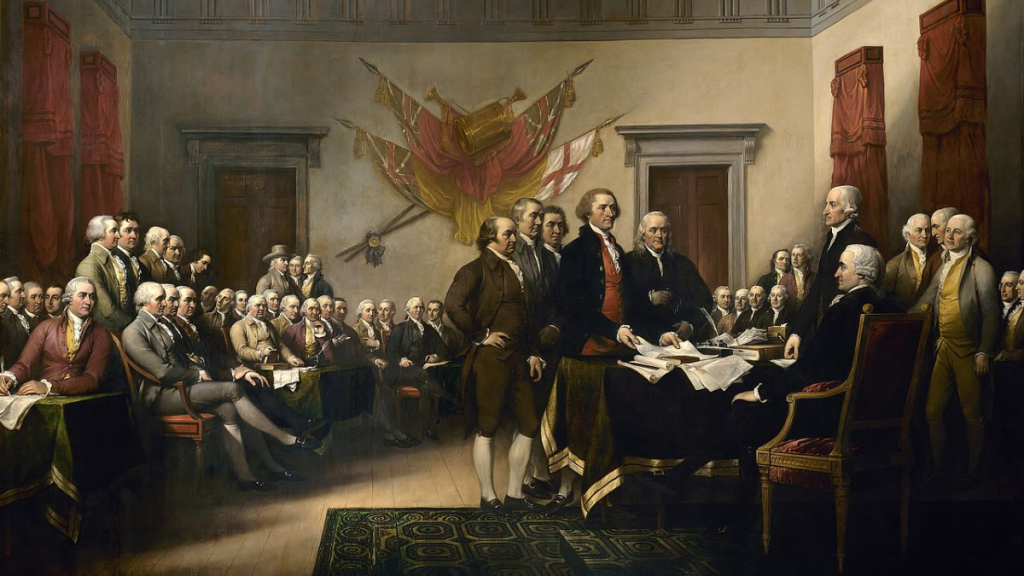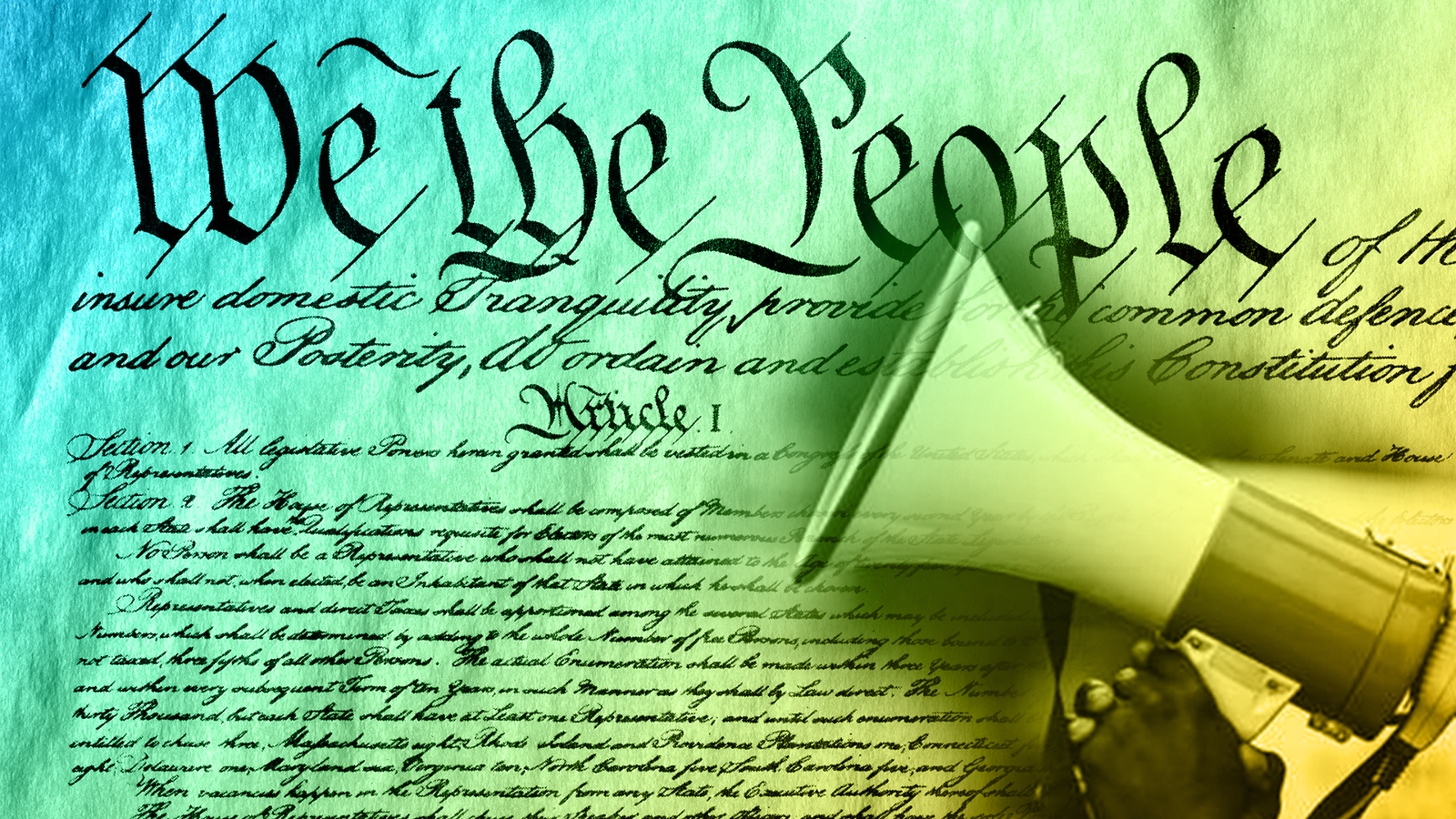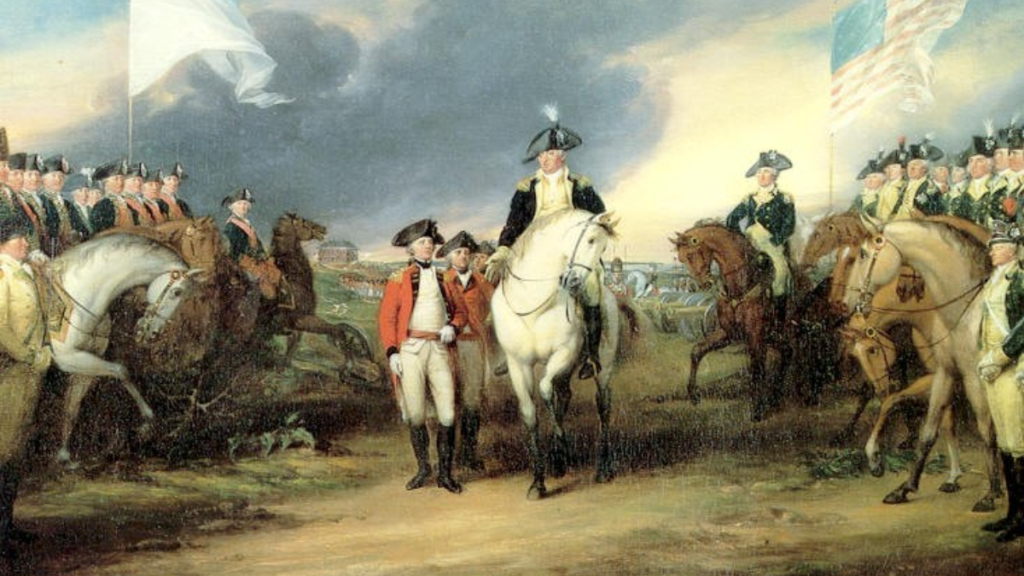Tag: America’s Founding


The two ideas that made America
July 3, 2023 | Post
The American Revolution: That moment when we declared independence from Great Britain and created an unprecedented new society. While we all know the basic details, most people don’t stop to ask exactly why the Founders declared independence from a powerful empire.

A history of free speech in America
June 8, 2023 | Post
The history of free speech in the United States is a complex and fascinating topic, deeply rooted in the nation’s founding principles. The First Amendment to the U.S. Constitution, ratified in 1791, protects the right to free speech, along with freedom of religion, the press, assembly, and petition.

The Declaration of Independence says we have the right to overthrow the government
May 12, 2023 | Post
The right to overthrow a government remains an important principle to uphold, as it serves as a check on government power. It is a reminder that governments exist to serve the people, not the other way around. The possibility of revolution also serves as a deterrent against abuses of power and as a last resort when all other avenues have failed.

Highlights from our Reddit AMA with Professor Sarah Burns
May 19, 2017 | Post
Did you miss our recent Reddit AMA with Professor Sarah Burns of RIT’s political science department? You can find the whole conversation here, or check out some of the highlights below. Dr. Burns is a regular contributor to the Learn Liberty Blog, and starred in our series on America’s Founding. Adama82 Hi, thanks for […]

Reddit AMA with Professor Sarah Burns, scholar of the American founding
May 5, 2017 | Post
Sarah Burns is Assistant Professor of Political Science at the Rochester Institute of Technology. Her research examines the intersection of political liberalization and American constitutional development with an eye toward policy implications for democratization across the globe. Professor Burns was featured in Learn Liberty’s America’s Founding series. She has also written on American history (1), American foreign policy (2,3), elections (4,5), […]

Hamilton Tells the Story of a Great Historical Figure, but Misses Some of the History
September 12, 2016 | Post
Hamilton the Musical takes liberties with American history.

Modern Libertarians Have a Lot to Learn from This Moment in History
July 16, 2016 | Post
Though I become more and more convinced—daily, if not hourly, and, sometimes, by the minute—of the inability of the political state to accomplish anything well, anything humanely, anything merely decently, or even anything without ultimately destroying the non-political spheres of life, I do think the finest possible state and political form of governance for a […]

Podcast: Prof. Sarah Burns Explains Exactly How America Was Founded
July 14, 2016 | Post
Oppressive taxation. Forcible quartering of soldiers in civilian homes. Lack of representation in government. What happens when a small group of rebels decide to declare freedom from the most powerful government in the world? The story of the American Revolution seems so second nature to many people that one may disregard the notion of listening […]

How a Few New Ideas Caused an Entire Group of People to Turn on Their Country
July 11, 2016 | Post
Much like us today, American colonists thought of themselves as a free people. They viewed governance through a lens called Radical Whig Theory, a political ideology stating that individuals within a free society must jealously guard their liberty and be wary of any government encroachment. The theory holds that freedom is hard to keep, and […]

A Closer Look at the Taxes That Led to America’s Founding
July 8, 2016 | Post
When we left the colonists in the first installment of America’s Founding, the British Empire had begun taxing Americans for the purpose of retaining its vast military power. But the colonists viewed the very military they were funding with ire, as soldiers often treated the colonists with disregard. In the latest installment of this series, Professor […]

This One Dysfunctional Military Practice Might Be Responsible for the Existence of the United States
July 7, 2016 | Post
What would you do if the U.S. Army came to your door tomorrow and demanded you pay taxes and tariffs on many of the items in your home? Would you fight back against them; would you declare yourself free and independent from America? Yeah, we didn’t think you’d opt for the latter route… But, believe […]

Why the Founding Fathers Risked Everything for an Untried Idea
July 7, 2016 | Post
Earlier this week, Americans celebrated one of their most meaningful holidays, their country’s Independence Day. It’s a day every American knows, a day spent with food, family, and fireworks. See Also: Why the American Revolution Was Really an Economic Revolution But, many Americans don’t know the real story that led to July 4, 1776. What […]

Why the American Revolution Was Really an Economic Revolution
July 7, 2016 | Post
Political slogans tend to obscure more than they enlighten. Barack Obama’s 2008 call for “Change We Need,” for example, turned out to mean almsgiving rather than substantive policy reform. Similarly, the American Revolution’s most famous slogan, “No taxation without representation,” failed to capture the essence of what colonists sought, or what, as freemen, they soon […]

